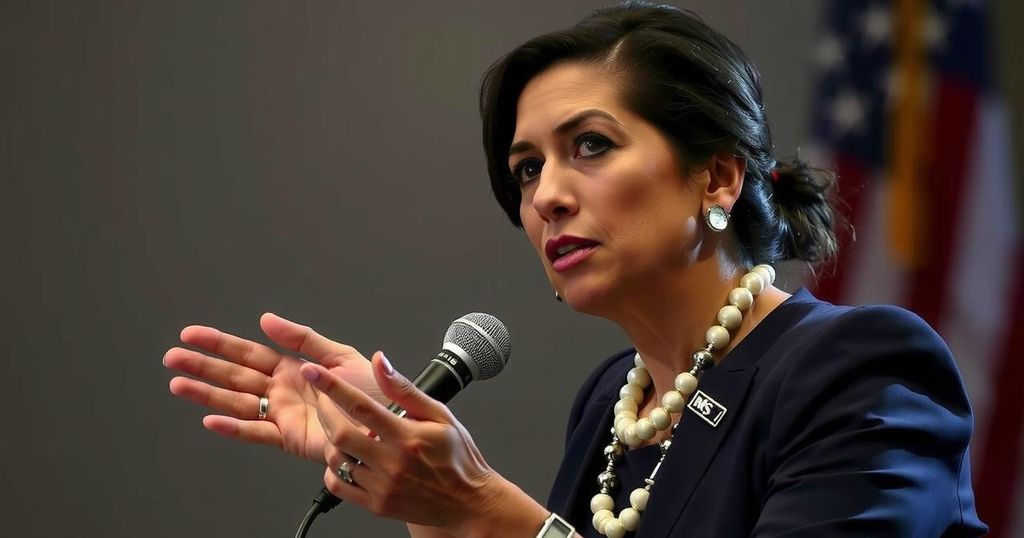Tulsi Gabbard’s Intelligence Role Raises Concerns Over Foreign Relations

Tulsi Gabbard’s nomination as Director of National Intelligence by President-elect Donald Trump faces scrutiny due to her past meeting with Syrian President Bashar al-Assad and comments regarding Russia’s actions in Ukraine. Her anti-war stance has drawn mixed reactions and raised concerns about intelligence cooperation with U.S. allies. Gabbard’s confirmation process is anticipated to be contentious.
Tulsi Gabbard, a former congresswoman, is facing renewed scrutiny following her selection by President-elect Donald Trump as the Director of National Intelligence (DNI). Her controversial meeting with Syrian leader Bashar al-Assad in 2017, alongside her prior statements regarding Russia’s invasion of Ukraine, have prompted concerns among former national security officials regarding her suitability for overseeing the United States’ intelligence community. Critics argue that Gabbard’s anti-war stance and perceived alignment with Kremlin narratives could hinder intelligence cooperation with allies.
In response to criticism, Gabbard has characterized her detractors as ‘warmongers’ intent on discrediting anti-establishment views. Trump has defended his selection of Gabbard, highlighting her military experience and commitment to intelligence integrity. However, her nomination has elicited praise from Russian state media, further alarming U.S. security officials. Gabbard has previously downplayed the Assad regime’s threats and questioned U.S. intelligence findings about chemical weapons in Syria, which continue to color her political trajectory.
Her views on international relations and U.S. foreign involvement remain divisive, causing concerns among law-makers that her positions could affect international intelligence collaboration. Some officials expressed apprehension that allies might reconsider intelligence sharing if Gabbard assumes leadership, given her contentious past assertions regarding Assad and Vladimir Putin. Nonetheless, others believe that long-standing alliances will persist irrespective of her confirmation.
As Gabbard’s confirmation process is anticipated to be contentious, senators will scrutinize her past views and potential implications for U.S. intelligence strategy and partnerships. Republican Senator Markwayne Mullin expressed optimism about having a discussion with her to clarify any uncertainties. In contrast, other lawmakers have voiced concerns, indicating that her tenure could reshape intelligence diplomacy dramatically.
The article discusses the implications of Tulsi Gabbard being nominated for the position of Director of National Intelligence (DNI) by President-elect Donald Trump. It provides a comprehensive overview of Gabbard’s controversial past, especially her meeting with Bashar al-Assad and her comments on Russia’s invasion of Ukraine. The backdrop to this scrutiny is rooted in Gabbard’s staunch anti-war stance and skepticism towards U.S. military involvement abroad, which has both garnered support and criticism across the political spectrum. The potential impact of her appointment on U.S. intelligence relations with allies is a significant concern for national security officials.
In conclusion, Tulsi Gabbard’s nomination as the Director of National Intelligence presents a complex landscape of political division and potential ramifications for international intelligence cooperation. Her controversial positions and associations raise critical questions regarding U.S. foreign policy and intelligence sharing with allies. While some remain hopeful about her candidacy, others express substantial reservations about her views aligning with adversarial narratives. The upcoming confirmation hearings will likely be pivotal in determining her suitability for this pivotal role in U.S. intelligence.
Original Source: www.bbc.com






